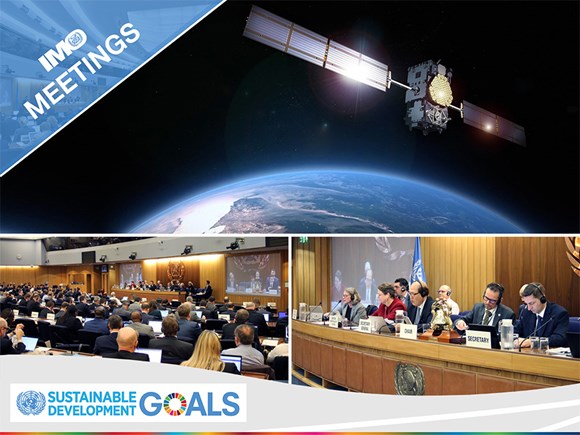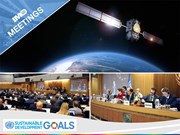
15 January 2020, 11:52
Modernizing the global maritime distress and safety system

IMO’s Sub-Committee on Navigation, Communications and Search and Rescue (NCSR 7, 15-24 January) will continue its ongoing work to review the GMDSS requirements.
http://www.imo.org/en/Mediacentre/WhatsNew/Pages/default.aspx
IMO's first meeting of 2020 is now in session.
Search and rescue at sea depends on the integrated satellite and terrestrial radiocommunication communications system known as the Global Maritime Distress and Safety System (GMDSS). The GMDSS is mandatory under the regulations in chapter IV of the International convention for the Safety of Life at Sea (SOLAS). IMO’s Sub-Committee on Navigation, Communications and Search and Rescue (NCSR 7, 15-24 January) will continue its ongoing work to review the GMDSS requirements, with the aim of enabling the use of modern communication systems in the GMDSS, while removing requirements to carry obsolete systems. The aim is to finalize the work in 2021, for submission to the Maritime Safety Committee (MSC), so that the revisions can be adopted for entry into force in 2024.
The Sub-Committee is also expected to complete its update of the International SafetyNET Services Manual. SafetyNET is an integral part of the GMDSS, providing an international automatic direct-printing satellite-based service for the promulgation of maritime safety information (MSI), navigational and meteorological warnings, meteorological forecasts, search and rescue (SAR) information and other urgent safety-related messages to ships.
On other matters, work on developing safety measures for non-SOLAS ships operating in polar waters will continue. While the IMO Polar Code is mandatory under SOLAS, this generally excludes fishing vessels, pleasure yachts, smaller ships under 500 gross tons and vessels on domestic voyages. The session will look into applying Polar Code chapters 9 (Safety of navigation) and 11 (Voyage planning) of the Polar Code to non-SOLAS ships. The IMO Assembly in 2019 adopted a resolution urging Member States to implement, on a voluntary basis, the safety measures of the Polar Code, as far as practicable, for non-SOLAS ships operating in the Arctic and Antarctic, including fishing vessels of 24 metres in length and above and pleasure yachts of 300 gross tonnage and above not engaged in trade.
The Sub-Committee will consider proposed revisions to the Guidelines on places of refuge for ships in need of assistance, which were adopted in 2003 (resolution A.949(23)), to provide guidance when a ship is in need of assistance but safety of life is not involved (when safety of life is involved, search and rescue provisions should be followed).
Recognition of navigation systems is also on the agenda. The Sub-Committee will receive information on the Indian Regional Navigation Satellite System (IRNSS), with a view to considering its recognition as a future component of the world-wide radio navigation system. Information will also be received on the Quasi-Zenith Satellite System (QZSS) (Japan) for development of performance standards for QZSS equipment, with a view to its future recognition.
IMO has an important role in accepting and recognizing navigation systems which can be used by international shipping. IMO currently recognizes the Global Positioning System (GPS), Global Navigation Satellite System (GLONASS), BeiDou Navigation Satellite System (BDS) and Galileo Global Navigation Satellite System. SOLAS chapter V requires all ships to carry a global navigation satellite system or terrestrial radio navigation receiver, or other means, to establish and update the ship’s position by automatic means, for use at all times throughout the voyage.
Amongst other regular agenda items, the Sub-Committee is expected to revise the Guidelines for Vessel Traffic Services to update the version adopted in 1997 (resolution A.857(20)). The session will also review proposed amended ships' routeing measures, discuss matters relating to the functioning and operation of the Long-Range Identification and Tracking (LRIT) and prepare liaison statements to the International Telecommunications Union.
IMO Secretary-General Kitack Lim opened the session, which is being chaired by Mr. Ringo Lakeman (Netherlands). (Click for photos).
Contact Information
Natasha Brown
Head, Public Information Services
IMO
+44 (0)20 7587 3274
+44 (0)7814702093
Nbrown@imo.org

